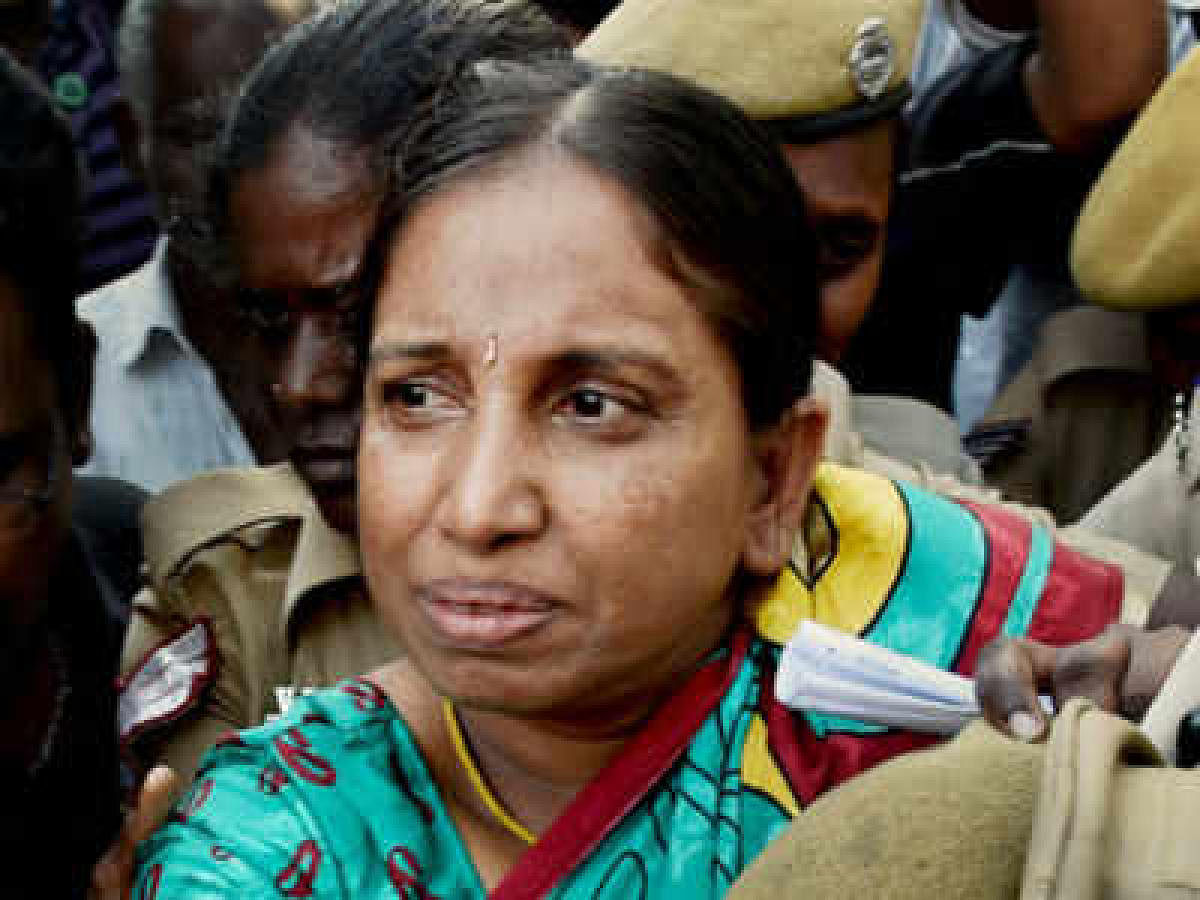
The Centre has reaffirmed in the Madras High Court its stand that the Rajiv Gandhi assassination case convicts cannot be set free without its consent and said the Tamil Nadu cabinet recommendation for their premature release would have 'zero' effect.
The oral submission was made on Thursday by Additional Solicitor General (ASG) G Rajagopalan before a bench of Justices R Subbiah and R Pongiappan during the hearing of a petition by Nalini, one of the seven life convicts, seeking to declare her detention as illegal.
Nalini has moved the court contending that since the Tamil Nadu Governor had failed to order her release based on the September 9, 2018 recommendation of the state cabinet, she was in illegal detention.
The bench, which heard arguments from all parties, reserved its orders on her petition.
Opposing the plea of Nalini, the ASG cited a Supreme Court order and said unless there was an order in the name of the Governor, it was not an illegal detention.
He said the resolution passed by the State Council of Ministers was not an order (for release).
Referring to an earlier litigation by Nalini in the Supreme Court, he said then the question raised was whether the state government has the power to release the convicts without the consent or consultation of the Central government under CrPC provisions.
The apex court had held that the Centre's consent or concurrence was necessary because the case was investigated by the Central Bureau of Investigation (CBI), Rajagopalan said.
Already the central government had refused to release these convicts. Besides, as per the Supreme Court orders, life sentence means imprisonment till death, he said.
Intervening, the bench asked the ASG then what will be the effect of the state cabinet's decision recommending premature release of the seven convicts (under Article 161 of the Constitution), which is pending before the Governor.
To this, the the Centre's counsel said the effect of the resolution passed by the cabinet was Zero.
In its counter affidavit filed earlier this month, the Centre had said the Tamil Nadu Governor has the discretion under powers conferred by the Constitution, to decide on the pending mercy petition of Perarivalan, another life convict in the case.
State Public Prosecutor A Natarajan, in his arguments on Thursday submitted that some of the offences committed by the accused come under the Central Act and therefore, for the purpose of commutation or remission, the state government has to get consent from the central government.
The Cabinet passed a resolution requesting the Governor to release all the seven convicts. It can only recommend or request the Governor to consider their release and cannot demand or ask him to set them free, he said adding it was for the Governor to decide.
Unless an order was passed, there was no question of illegal detention of Nalini, he added.
Radhakrishnan, counsel for Nalini, contended the resolution passed by the Council of Ministers was binding on the governor.
Since the cabinet advised the Governor on September 9, 2018 to release the petitioner, the order to the effect should have been issued the very next day itself by the government, he maintained.
As per the ruling of the Supreme Court in Maru Rams case, the Governor's signature was not necessary for the purpose of releasing the petitioner, he claimed.
All the seven were convicted by a special TADA court for their role in the assassination of former prime minister Rajiv Gandhi on May 21, 1991 by an LTTE suicide bomber during an election rally at nearby Sriperumbudur.
They were sentenced to death, but later it was commuted to life imprisonment.
Besides Nalini, the other life convicts are her husband Murugan, A G Perarivalan, Santhan, Jayakumar, Ravichandran and Robert Pyas.